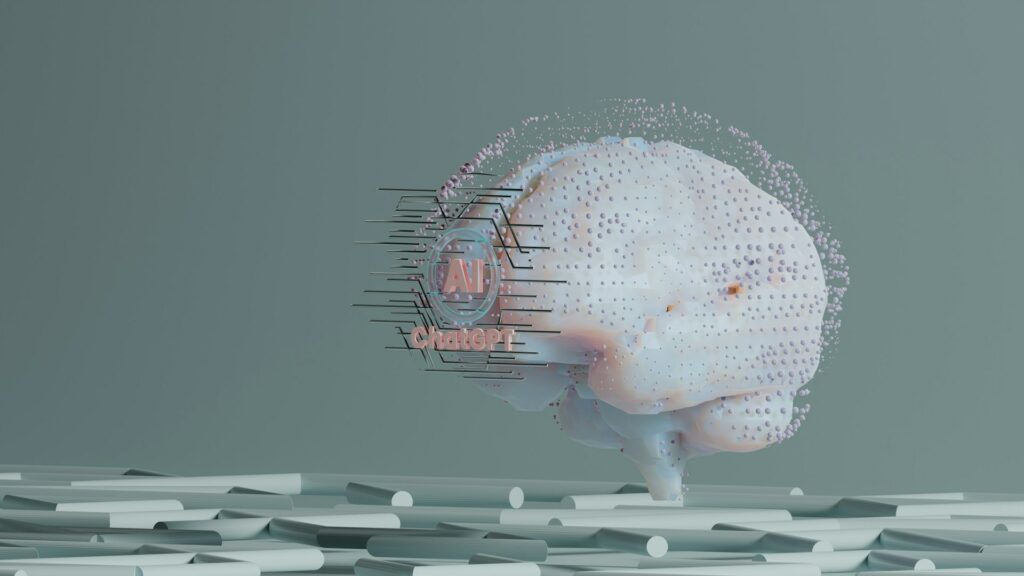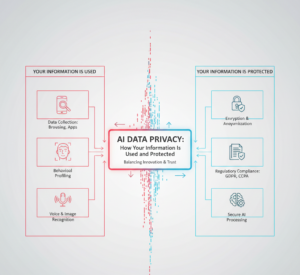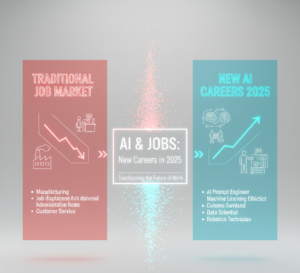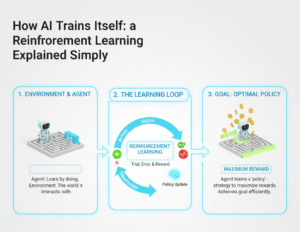The Utilization of Artificial Intelligence for Improved Mental Health Support and Therapy

The Utilization of Artificial Intelligence for Improved Mental Health Support and Therapy
In contemporary culture, mental health has established itself as one of the most important facets of an individual’s entire well-being. In the current climate, where rates of stress-related illnesses, depression, and anxiety are on the rise, immediate access to efficient mental health assistance is of the utmost importance. The manner in which mental health services are provided is being revolutionized by artificial intelligence (AI), which is opening up new possibilities for individualized treatment, early intervention, and ongoing support.
1. Comprehending Artificial Intelligence in Mental Health
The use of machine learning, natural language processing, and predictive analytics in order to improve mental health services, including treatment, diagnosis, and support services, is referred to as “artificial intelligence in mental health.” Artificial intelligence (AI) systems are capable of processing enormous quantities of data—including speech patterns, activity on social media, and physiological signals, among other things—in order to detect early warning indications of mental health problems and give therapies that are tailored to the individual.
2. Chatbots and virtual therapists that are powered by artificial intelligence
Woebot and Wysa are two examples of chatbots that use artificial intelligence to give mental health help around the clock. They have the ability to engage users in therapeutic talks, provide them with coping methods, and coach them through cognitive behavioral therapy (CBT) approaches. These resources offer accessible, stigma-free assistance for anyone who may otherwise struggle to seek treatment; nevertheless, they are not intended to be a substitute for professional therapists.
3. Using Predictive Analytics to Achieve Early Detection
Algorithms that use artificial intelligence are capable of identifying early warning signals of mental health problems such as anxiety or depression by examining patterns that emerge in speech, writing, or digital activity. Artificial intelligence is able to detect tiny shifts in tone, word choice, or social participation, which means that it may provide early warnings to both mental health professionals and people before problems become more serious. This allows for prompt intervention.
4. Therapy Plans Customized to the Individual
Therapists may get help from artificial intelligence (AI) in the development of treatment programs that are tailored to each individual patient. Artificial intelligence (AI) systems are capable of making recommendations for particular therapeutic procedures, recommending exercises, or adjusting the degree of treatment by assessing patient history, patterns of symptoms, and responses to previous treatments. This kind of therapy, which is driven by data, guarantees that the treatment is more focused and successful.
5. Improving Teletherapy Services
Particularly in the aftermath of health crises that have impacted the whole world, the use of teletherapy has increased at a fast pace. These services are augmented by artificial intelligence (AI), which offers assistance to therapists in real time, including but not limited to sentiment analysis during sessions, monitoring progress over time, and indicating areas of concern. This enables therapists to concentrate on human contact while artificial intelligence takes care of insights that are based on data.
6. Lowering Obstacles to Receiving Mental Health Treatment
Accessibility is one of the most critical issues that mental health treatment faces. Platforms that are driven by artificial intelligence (AI) provide scalable solutions, which enable those who live in distant or underserved locations to get assistance. Furthermore, mental health treatments are more broadly accessible as a result of artificial intelligence (AI) technologies, which cut down on both time limits and expenses.
7. Monitoring and Continuous Support
Wearable gadgets, smartphone applications, and internet platforms are all ways that artificial intelligence (AI) may be used to enable continuous monitoring of mental health. Artificial intelligence (AI) systems are able to identify swings in mental well-being by analyzing sleep patterns, heart rate variability, activity levels, and emotional moods. These systems may then give treatments or reminders to assist people in maintaining mental stability throughout time.
8. Offering Support to Professionals and Minimizing Burnout
Mental health practitioners are confronted with heavy workloads and emotionally draining situations. By automating administrative work, condensing session notes, and discovering crucial trends in patient data, artificial intelligence (AI) may provide assistance. Artificial intelligence (AI) enables therapists to spend more time and energy on providing direct patient care by minimizing the amount of repetitive labor that they have to do, which in turn reduces burnout and enhances the quality of services provided.
9. Limitations and Ethical Concerns
Artificial intelligence (AI) provides a number of substantial advantages, but it also raises questions about ethical issues. It is of utmost importance to preserve sensitive information about mental health, hence privacy and data security must be prioritized. In addition, artificial intelligence technologies may not possess the capacity for empathy and sophisticated understanding that a human therapist does, which would render them inappropriate for use as standalone remedies for serious diseases. In order to guarantee that treatment is both safe and ethical, it is essential to maintain human supervision.
10. The Role of Artificial Intelligence in the Mental Health Industry in the Future
The prospects for the future of artificial intelligence (AI) in the field of mental health seem to be bright. Artificial intelligence (AI) may be able to provide assistance that is more and more context-aware and nuanced as a result of advancements in emotion identification, natural language comprehension, and adaptive learning. It is anticipated that hybrid models, which combine human therapists with technologies powered by artificial intelligence, will become the norm in the future. These models will provide mental health treatment that is scalable, individualized, and successful for people of all different backgrounds.
Artificial intelligence is revolutionizing the field of mental health treatment and support, making it possible for care to be more proactive, individualized, and accessible to a wider range of people. Artificial intelligence (AI) might potentially improve mental health care by making early diagnosis easier, supporting experts in their work, and enabling continuous monitoring of patients. Artificial intelligence (AI) is not intended to be a substitute for human therapists; rather, it is meant to serve as a formidable ally in the continuous fight to promote mental well-being across society.




